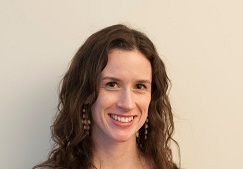
By Caroline Corcoran
As a teacher who has to administer many tests (interim tests, end of unit tests and state standardized tests, to name a few), I am pretty confident about my ability to predict what will show up on a test. I know, for example, that each test will consist mainly of multiple-choice questions, with a few short answers (requiring no justification) and one or two open-response questions (that do require justification). While these tests might be an economical way to test, I'm unconvinced that they truly serve my students' needs. As a working professional, I rarely have to answer multiple-choice questions, but I routinely face open-ended questions that require me to justify my thinking.
The Common Core Standards expect that students will learn the skills they need to be college and career ready: the ability to justify a claim, write extensively and research deeply, find solutions to complex problems and describe why those solutions work, and produce intelligent thinking on-demand as well as over a period of time. I'm not convinced that current tests do the same.
Here's an example. One Common Core standard asks students to explain how a narrator's point of view influences or changes how events are described. A multiple choice question then asks this: The following are excerpts from stories about being in a blackout. Which view of the event is most similar to that of the original narrator? Then my students read four different paragraphs, each telling the story of a blackout from different perspectives. A complex standard is essentially reduced to a matching exercise.
According to a report by David T. Conley at the Educational Policy Improvement Center, this heavy reliance on multiple-choice is most likely setting our students up for failure in college. A multiple-choice test only asks students to find the right answer; college asks students to defend the best answer; and a career asks professionals to synthesize best solutions.
With new expectations brought on by the Common Core, our expectations for assessments also need to change. In my classroom, the tests I administer don't tell me enough so I supplement with extended projects that take place over the course of a few days or weeks. These projects require students to synthesize information from multiple books and lessons, write in different genres and styles, and edit and revise their work until they have shown their absolute best. Sometimes my students work independently and sometimes in groups. The projects integrate standards across multiple content areas, ensuring that students truly assimilate knowledge and ideas.
Take the same standard about how a narrator's point of view influences or changes the telling of events. Rather than reducing it to a multiple-choice question, let's have students read four or five different accounts of experiences, such as those during the Great Depression. Students could then write about how the protagonists' circumstances before the Depression changed their experiences during this pivotal period in American history. To extend their thinking, students would then take on experiences of someone who has lived through the depression. They would then write an account from that person's perspective based on what they know from their previous readings.
Tests can provide us with a snapshot, but a collection of student work, geared toward a specific purpose, can give us a fuller picture of what this student knows and is able to accomplish. Extended projects require student to use more critical-thinking skills, since more reflection is required in order to make improvements. They also provide practice around those intangibles: time management, organization of materials, cooperative working, and faithful attention to deadlines.
As we continue to rise to the challenge of the Common Core, we must focus on the types of assessments that will meet the same high expectations. Now that we have standards that can ensure our students are college and career-ready, let make sure that have tests that will do the same.
Caroline Corcoran is a dual certified (Elementary Education and English as a Second Language) teacher in the Boston Public Schools and a Teach Plus Teaching Policy Fellowship alum.
